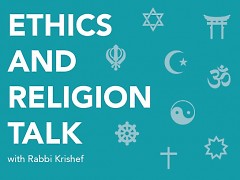"Over the years I've heard some Muslims refer to Christians as polytheists. Then we have Christians, who to the best of my knowledge, consider Hindus as polytheists. I would love for you all to shed light on this for me.”
The Reverend Colleen Squires, minister at All Souls Community Church of West Michigan, a Unitarian Universalist Congregation, responds:
“Unitarian Universalism is a curious faith that looks to six diverse sources to draw upon to inspire us in our ethical and spiritual life. These sources are taken from science, poetry, scripture, world religions, Earth-centered traditions as well as the human experience. Because of the variety of sources we understand that God can be experienced in many forms, with many faces, but at the very core there is one ultimate reality of the Divine.
“Similar to Hinduism, Unitarian Universalists believe in the personal search for spiritual truth, the view that all things are connected, and a respect for other religious paths. Unitarian Universalism welcomes many understandings of divinity, including those of the incredibly diverse Hindu faith. We would understand Hinduism as a polytheist religion. At the same time most Unitarian Universalist Christians believe in a Unitarian God (a monotheist understanding of God) and not the traditional God-as-Trinity that most Christian denominations follow. Finally most UUs would agree that Judaism, Christianity, and Islam are three monotheistic religions.”
Father Kevin Niehoff, O.P., a Dominican priest who serves as Adjutant Judicial Vicar, Diocese of Grand Rapids, responds:
“The answer to this question begins with defining terms. Monotheism ‘is the belief in a single all-powerful god. Judaism, Christianity and Islam are widely practiced forms of monotheism.’ Polytheism ‘is the belief in many gods.’ (Source: www.britannica.com)
“The belief in one God in three persons is sometimes difficult for humans to grasp. The Roman Catholic Church states, ‘we firmly believe and confess without reservation that there is only one true God, eternal, infinite, and unchangeable, incomprehensible, almighty, and ineffable, the Father and the Son and the Holy Spirit, three persons indeed, but one essence, substance or nature entirely simple’ (Lateran Council IV: DS 800).
“The challenge in making a distinction regarding one God in three persons is real. The finite and human mind has a difficulty time seeing three people being one. The conflict with the finite mind trying to understand the infinite sheds lights onto something I have said in previous statements. Humankind is challenged by using its limited language(s) to define the infinite God.”
Rev. Ray Lanning, a retired minister of the Reformed Presbyterian Church of North America, responds:
“Reformed Christians believe that ‘there is but one only living and true God,’ but ‘in the unity of the Godhead there are three persons, of one substance, power, and eternity: God the Father, God the Son, and God the Holy Ghost.’ Both ideas are conclusions drawn from the evidence of both the Old Testament and the New. It might be called a modified monotheism, as distinct from the more absolute monotheism of Judaism and Islam. The most basic point of conflict is the Christian assertion that Jesus of Nazareth was (and is) God incarnate or ‘made flesh.’ No one has found a way to resolve this conflict without destroying the core of what makes Christianity Christian.
“My tradition views Hinduism as decidedly polytheistic. It takes a very keen eye to detect any unity of being in the multiplicity of deities that fill the Hindu landscape. The same is true for the Mormon notion of apotheosis, the way by which humans beings are exalted into deities as the endpoint of salvation, in an ongoing, self-propagating system.”
Fred Stella, the Pracharak (Outreach Minister) for the West Michigan Hindu Temple, responds:
“Of all the questions about Hinduism we receive I would say that is probably the most asked. Admittedly, we don’t fit into the binary concept of polytheism/monotheism very well. For the last couple of centuries we have been defined by the western faiths as polytheists. This challenged the Hindu community to explain, not only to others but to ourselves, just where we stand.
“The query can be viewed on a couple of different levels. Ultimately, most Hindus would agree that we are monist. This is different from monotheistic. The latter acknowledges one personal God who is separate from His creation. The former indicates the understanding that God has manifested as the physical universe, and that all creation is part of the One Substance.
“But we cannot deny that Hinduism is rich with a pantheon of deities. Some Hindus acknowledge these as real divine beings who inhabit a spiritual realm and can influence our lives. Others see them as symbolic of the various attributes of the one God known as Brahman. Either view may be taken. A term that is gaining in popularity that attempts to describe this theological view is polydeistic theism.”
This column answers questions of Ethics and Religion by submitting them to a multi-faith panel of spiritual leaders in the Grand Rapids area. We’d love to hear about the ordinary ethical questions that come up on the course of your day as well as any questions of religion that you’ve wondered about. Tell us how you resolved an ethical dilemma and see how members of the Ethics and Religion Talk panel would have handled the same situation. Please send your questions to [email protected].
The Rapidian, a program of the 501(c)3 nonprofit Community Media Center, relies on the community’s support to help cover the cost of training reporters and publishing content.
We need your help.
If each of our readers and content creators who values this community platform help support its creation and maintenance, The Rapidian can continue to educate and facilitate a conversation around issues for years to come.
Please support The Rapidian and make a contribution today.
